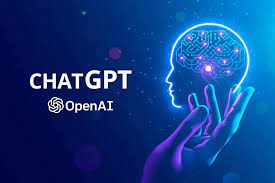The Education System And Academia Need To Adapt
Technology is advancing rapidly; it is moving at a pace that is too fast for the average individual to keep up with it. This includes the principals and administrators of public and private institutions, now grappling with an artificial pandemic called ChatGPT.
WHAT IS CHAT GPT?
It is an advanced machine learning system owned and operated by OpenAI. It can do a wide variety of things and provide an extensive range of information when given a prompt. This it does based on existing sources on the internet. (Note: AI stands for Artificial Intelligence.)
So, you can say, “ChatGPT, write me a 2,000-word essay on the importance of crime and violence reduction,” and it can generate a response in just seconds that would have taken a law student days to complete. It would pull the information from various sources across the internet in a flash. While it may not be perfect and quite generic, with minimal editing on the part of the student, it could pass as genuine if not properly fact-checked.
DON’T BE FOOLED

The Jamaican education system needs to step up its game to verify the authenticity of a student’s, or even a teacher’s work and performance. Chat GPT and other AI models have their advantages, but there is a limit to which they should be used, beyond which is really dishonesty.
They can be used to assist in collecting information, for example, for a research paper, but they could also write that same research paper, especially the advanced version (Chat GPT 4).
This article you are reading could have been written by AI, and one could be easily fooled into thinking it is original work.
(I guarantee you that this was written by me, a human, and I have very serious parents.)
Many in academia locally may not be fully aware of the capabilities of advanced AI systems, but it is important that as we step into a new year that promises growth in AI, we ensure that our local educational institutions are ready to adapt to the changing landscape.
It is a troubling scenario to think that a student could utilise Chat GPT to write a Chemistry SBA and later go on to get an A+ in the subject — all under the noses of teachers. In fact, a deceitful professor lacking ethics could utilise Chat GPT to write research papers, resumes, and other documents for them. Such actors in foreign countries have already abused this AI to slip through the cracks.
AI CITES ARTIFICIAL CASES IN LAWSUIT
The lawyer for a man, who was suing an airline in a personal injury lawsuit, used Chat GPT to prepare a filing for the case. The AI model then delivered fake cases to the attorney, who cited them to bolster his evidence and the validity of his case; but the opposite effect was achieved when the use of Chat GPT was uncovered, and the attorney faced sanctions from the judge and had his credibility put in disrepute.
He then had to sign an affidavit, confessing to having used Chat GPT (but not with intent to deceive the court) and requesting not to be sanctioned.
Given this case and the numerous others overseas, what will we do? It is a valid concern that such incidents could repeat themselves locally in Jamaica.
GOOD LOOKS BAD AND BAD LOOKS GOOD
Many teachers and school administrators have raised concerns about the use of Chat GPT and other AI systems by students to cheat on exams and get excellent grades on essays they did not write. This also sows a seed of distrust between teachers and students, where, on the one hand, a genuinely talented student could fail or be suspected of cheating due to their exceptional skills. On the other hand, a student lacking talent and possessing a lazy attitude could get away with a fantastic grade due to using Chat GPT and manipulating the system.

While Chat GPT can be an excellent tool, when used appropriately, it also poses a significant risk to the verifiability of work—from high school students all the way to professors and the academic elite. If the widespread abuse of Chat GPT in the education system is not addressed adequately, genuine students who work hard can get burned out and outshined.
BENEFITS
It is unfair to completely condemn Chat GPT and AI systems similar to it though. It is a great tool for accomplishing tasks and getting information. People can debate with it on matters such as religion, gender, and societal and ethical dilemmas.
It can generate somewhat generic, but well-thought-out stories, and unlike other AI systems, does not respond to queries or roleplays of a sexual nature.
Students, including myself, can use it to help with studying, where it generates practice questions and assists in revision where a teacher is absent or unable to do so.
A teacher or administrator could also use Chat GPT to generate tips and information on how to reach out and interact with students more and how to improve their teaching environment. It is important that the education system harnesses the power of Chat GPT without making it a double-edged sword that is its own undoing.
CHECKS AND BALANCES
It is generally unwise for any student reading this article to use Chat GPT to beat the educational system. It is likely that your teacher will eventually catch on to the flat and somewhat generic writing, or the use of words not seen before in your vocabulary.
In fact, Google Classrooms now offers a feature where you can check a student’s work for signs of plagiarism and the use of AI systems. While the mischievous pleasure of winning now may feel exhilarating to you, the student, later down the line it may catch you. Stakeholders need to prevent such incidents from happening for the good of our students and the wider academic community.
____________________________________
Contact Ifeoluwa at [email protected]. He is 14 years old and has been writing for FC Rain since he was age 11.






